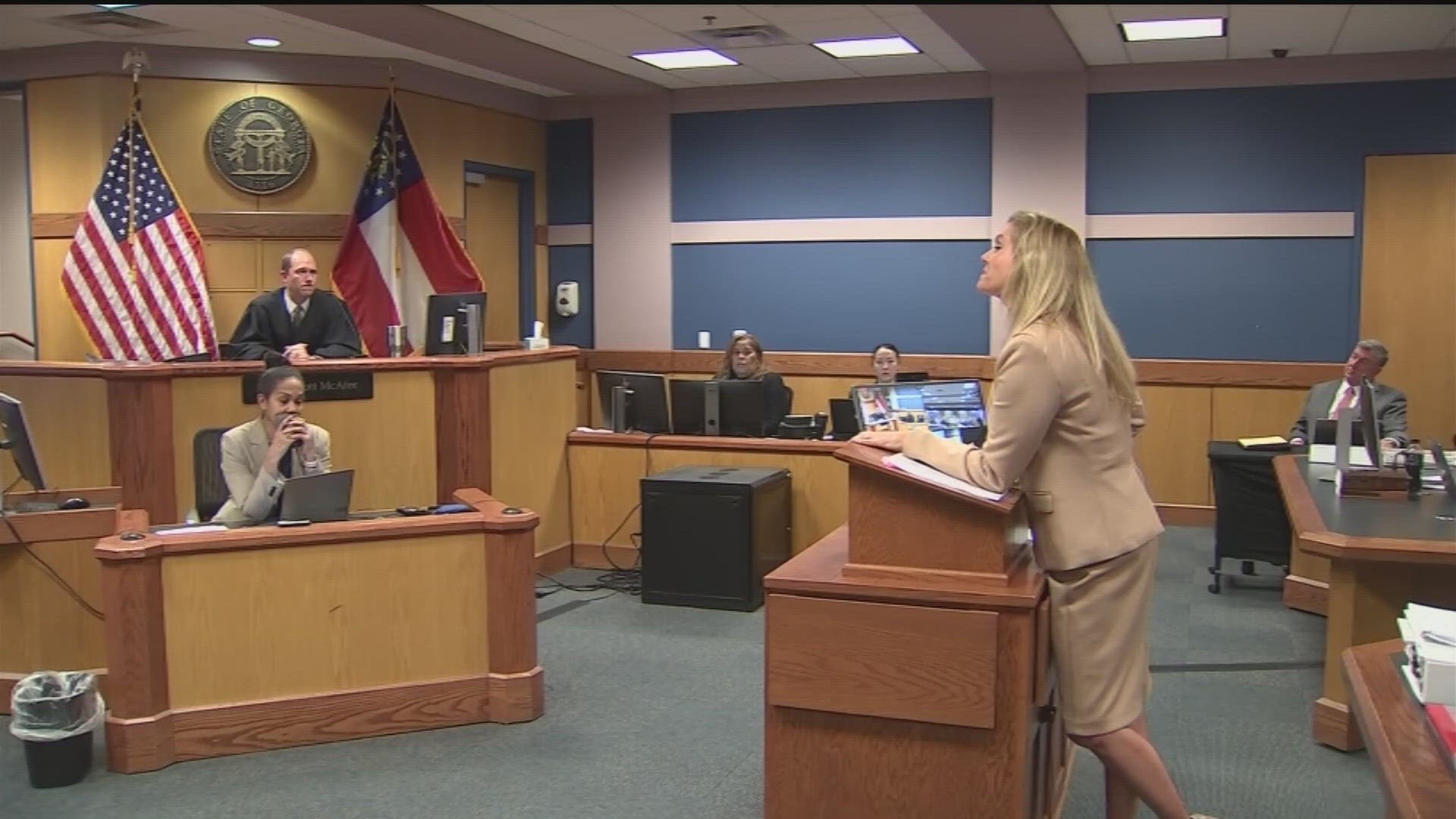ATLANTA — There's no trial date set for the Fulton County election interference case yet, but that could change quickly.
Former President Donald Trump will likely be on the ballot in Fulton County this November — and potentially, a criminal court docket before then. He and 18 others are accused of attempting to overturn the state's 2020 election results.
Right now, Fulton County Superior Court Judge Scott McAfee is weighing whether the District Attorney Fani Willis' romantic relationship with special prosecutor Nathan Wade renders the pair unable to impartially prosecute the Fulton County election interference case against the former president and others.
"What we've got is a open schedule where Judge McAfee, depending on his ruling involving the disqualification of Fani Willis, could choose to put this on an accelerated trial schedule," said criminal defense and civil trial attorney Joshua Schiffer, who is not involved with the case.
"There are certainly many additional motions and practice issues that need to be explored by the court prior to trial, but we are still theoretically looking at a criminal trial prior to this November's election," Schiffer said.
Whether the former president is on trial before the presidential election might not matter at the polls, according to Emory University political scientist Dr. Andra Gillespie.
"The Democrats are already disinclined to support Trump," she said. "There are a significant number of Republicans who said they will vote for Trump, regardless of whether or not he is convicted of a crime."
Gillespie said Trump has used some of his criminal indictments to his advantage.
"Every time he has been indicted, he has been able to spin the case and make an appeal to his supporters that he is being politically persecuted and unfairly targeted," she said. "He was a public figure that people knew outside of politics and he's been able to kind of take those skills and the notoriety that he got in reality television and apply them here in politics."
Whether he's convicted or acquitted could help some independents decide how they want to vote. However, there might not be enough of them to sway the outcome.
"If the base doesn't turn out to vote on either side, there just aren't really enough independents to really be able to make the difference," she said. "The case is going to have to be made on both sides to try to mobilize the types of voters who would be inclined to vote for either candidate."

